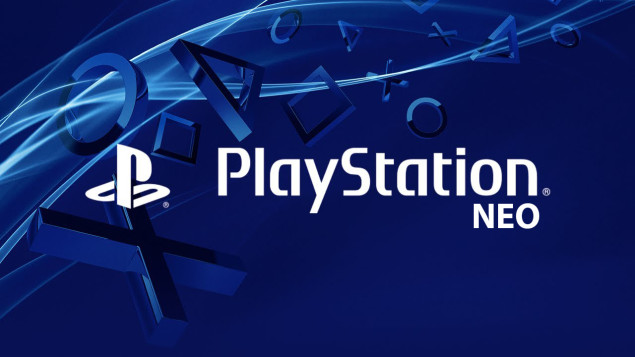Image source
Video games had their first prototypes in the 50s and 60s when they were nothing more than extensions of the standard electronic games that used video output from mainframe computers. The first video game made for consumers was Computer Space in 1971, followed by Pong in 1972. Since then, video games have grown to become one of the largest industries in the world, with revenues amounting to hundreds of billions of dollars across software, hardware, and services. The sector is approximately three times the size of the global film industry and roughly four times the size of the film industry, making it one of the most essential parts of the larger entertainment industry.
Far from being over, progress in this field continues to this day. One of the latest developments is the integration of blockchain technology and Web3 into the gaming landscape. The system has so far been associated almost exclusively with the trading of products such as BTC futures, non-fungible tokens, or other Web3 products. However, after noticing the multilayered functionality of the system, experts have concluded that the technology could be used in several other areas, from supply chains to video games.
In fact, many currently believe that the blockchain and Web3 might be the missing piece in the next generation of games, given the fact that the standard, centralized systems have begun to be regarded as something that limits progress and creativity instead of driving innovation.
GameStop
GameStop is an American video game retailer that also deals with gaming merchandise and consumer electronics. Headquartered in Grapevine, Texas, the brand is currently the world’s largest game retailer, operating more than 3,000 stores as of February 2025 across the US, Canada, Australia, and Europe. In June 2025, the platform made its first Bitcoin purchase, buying 4,710 coins worth approximately $512 million. The reason for the transaction was to establish a corporate BTC treasury, with the brand’s CEO saying that he regards Bitcoin as a hedge against devaluation and systemic hazards.
Riot Games
Riot Games and Coinbase have recently announced a multi-year partnership as well as the plan to bring blockchain solutions to esports events. The Valorant Masters Toronto, taking place between June 7th and 22nd, is the first event implementing the technology, making a departure from the use of older tech and a commitment to the future. No direct blockchain features are included in Riot’s games so far, but there’s no telling what the future holds in this regard. Future adoption will most likely depend on how well the current developments perform and what they manage to achieve.
Mythical Games’ FIFA
Mythical Games’ FIFA is a Web3 video game designed for mobile that recently drew attention from the players for following in the footsteps of NFL Rivals. The game includes Adidas-branded digital assets, allowing players to access items that are exclusive to the game, such as jerseys, kits, and shoes, all of which are inspired by the brand’s football heritage. NFL Rivals was similar in that it also allowed the players to purchase and sell digital holdings, but compared to Mythical Games, it hasn’t succeeded in achieving viral success. Mythical Games has already been downloaded millions of times and generated $650 million in completed transactions from its nearly 8 million gamers. The global popularity of Adidas has definitely helped as well, strengthening the cultural connection with those who may not be as aware of what blockchain games have to offer on their own.
The Metropolitan Museum of Art
New York City’s emblematic Metropolitan Museum of Art is the third-largest museum in the world and the largest art museum in the Americas, with almost 6 million visitors coming to see its 2 million works in 2023. The permanent collection includes items from all over the world and dates from several historical periods, including Ancient Egypt, the ancient Near East, the European Old Masters, as well as Byzantine, Oceanian, Islamic, Asian, and African art. Textiles, musical instruments, decorative arts objects, and costumes are part of the exhibitions as well.
The museum has now taken things a step further by launching a short-session blockchain game known as Art Links, which gets the player to find connections between the artworks in the Met’s collection. The game is the museum’s first Web3 experience ever and was designed as part of a partnership with the TRLab tech platform as a mobile-first, blockchain-powered, and browser-based game that presents those interested with a new way to engage with the Met. Players can also collect unique NFT badges and win both digital and real-world awards.
Ubisoft
Ubisoft is a French video game publisher located in Saint-Mandé, a commune situated a little over 5 km from the center of Paris. Its video game franchises include Assassin’s Creed, Driver, Prince of Persia, and Anno. The company has recently joined forces with blockchain gaming brand Immutable in order to develop Might & Magic: Fates. This game is a free-to-play strategy card game that works with both iOS and Android and is based on the well-known Might & Magic franchise. You have the ability to collect and trade hundreds of cards in the game and develop personalized strategies that help you throughout the playing process.
Peaky Blinders
This British period crime drama set in Birmingham in the early 20th century has received critical acclaim for its performances, the value of its production, and the complexity of its storytelling, becoming one of the most popular shows in the world. Now, Banijay Rights and Anonymous Labs are developing a blockchain-based video game based on the series, set to be released in 2026. The setting will still be post-WWI Birmingham, but the game will also provide interactive experiences and tokenized currencies.
To sum up, the connection between video games, the blockchain and Web3 continues to grow as game developers become more confident in joining forces with them.








![[Rumor] Chrono Trigger remake or remaster could already be in development](https://vgleaks.com/wp-content/uploads/2026/02/chrono-trigger-150x150.jpg)


![[Rumor] The Game Awards 2026: GTA 6 Might Not Make It In Time](https://vgleaks.com/wp-content/uploads/2026/02/GTA6-awards-150x150.jpg)

